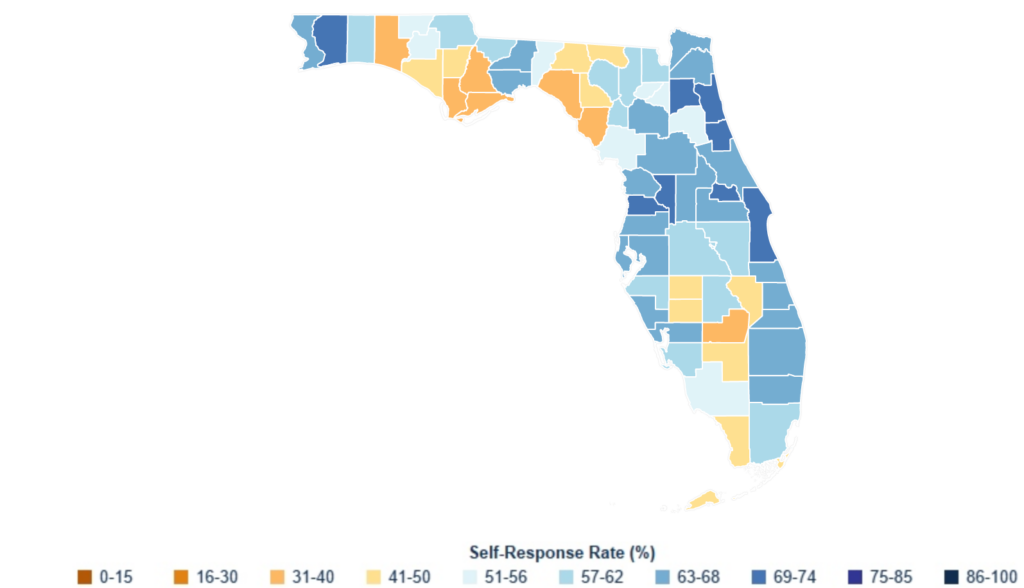Pandemic Delays 2020 Census Results
by Makahla Charles, Valentina Padula, Kristin McLean, and Lakeeyah Nanton

Since the March outbreak of COVID-19, the progress of the 2020 Census has been delayed. Funding for state and local programs will be affected by possible budget cuts.
Every ten years, the Census is conducted to provide people with a clear and detailed outline of the population. It helps officials determine where each person resides, what race or color they are, and what resources they need to survive. Through the Census, the country can properly distribute $1.5 trillion in yearly spending to 316 programs like healthcare or school lunches as stated by The Project on Government Insight, POGO. It plays an essential role in federal funding and supporting countless businesses and organizations. It impacts communities by providing a significant amount of money for their schools, hospitals, construction, and other developments.
“I know that the Census is a civic engagement,” said Broward County Census project coordinator Naomie Labaty, “The data helps our communities be stronger by funding countless vital programs.”
Because of the pandemic, there is a high chance of inaccurate data and funding. It has become much more difficult to promote the Census and encourage others to take it. As a result, many are less informed than they should be. The Census Bureau has had to limit door to door knocking and advertising events. In order to increase response rates, they had to continuously lengthen their data collections. Recently, however, the Supreme Court has issued that the Census must end its count on October 15th.
While COVID-19 has led to many setbacks and difficulties, citizens strive to develop a reliable Census that will correctly address what they need to recover. With the 2020 Census, communities can gather accurate funding to provide equipment for hospitals and to help students get back to school.
“Not only do we receive an enormous amount of funding to support emergency programs, hospitals, etc., but the data that the U.S. Census Bureau collects through the decennial count really is invaluable to help make rapid decisions in times of crises.” Labaty said.
COVID-19 has not been the only deterrent to a successful 2020 Census, lack of awareness for it has been one of the main reasons for a decrease in response rates. A large percentage of our population are uneducated on the effects of the Census in our funding, and feel it has little significance. According to a survey done by the Pew Research Center in 2020, 56% of adults believed that the Census had a citizenship question while some were completely unsure.
Due to this lack of knowledge, the Broward County response rate is only at about 63.8% as of October 17th, 2020. If people become conscious of its impact on daily life, response rates can increase and shed light on ways to sufficiently improve daily services.
“Maybe schools can step in and educate their shareholders,” said West Broward Assistant Principal Diana Hurtado, “because somehow, one way or another, we’re affected.”

25% of US citizens feel the need to take the Census because they believe it is their civic duty. While, an estimated 30% of Americans feel the need to take it because it provides community and school funding as stated by a survey done by the Census Bureau. No matter the reason for participating in the Census, citizens realize its influence on their daily lives as it helps distribute funds for hospitals, schools, medicare, Medicaid and other programs.
Dennis Rodrigues, an AP Human Geography teacher, said “I think it’s my duty to help us be counted because if people don’t then we’ll lack funding for a lot of things – roads, police, schools, etc.”
Census data determines the distribution of funds that goes into programs such as Title I funding, nutrition and meal plans, and special education services. Florida is given around $252 million to spend on school breakfast programs according to project Counting by Dollars. Similarly, Title I funding, a program that provides financial assistance to families in need, receives $852 million in Florida according to the same project. Through these services, schools can provide for each student and ensure their proper education.
“The Census really just tells public officials what resources we need like how many schools and if there’s enough resources for them. ” Hurtado said.

School funding impacts both students and parents. With the help of the Census, communities can fund student’s classes and extracurricular activities.
Recently, a survey was conducted by West Boward students to fully grasp how students and adults truly feel about the 2020 Census. When participants were asked to answer questions concerning their opinions on the Census, many had a lot to say.
Sophomore Adaolisa Amy said, “I believe the Census impacts our community by letting children have access to better learning opportunities, causing them to grow into influential and esteemed people in the future.”
While citizens of America understand that the Census provides funding for schools, hospitals, and construction, some refuse to take part. If a majority of Americans do not participate in the Census, this can lead to an inaccurate distribution of money. A lack of resources and income would make it much more difficult for communities to aid their citizens and improve their circumstances.
“It [an inaccurate Census] would be disastrous,” Labaty said. “It would mean that we could not fully trust the data. It would mean the loss of billions of dollars for schools, food programs, roads, emergency response, Medicaid, Medicare, and many others.”
Weak funding will ultimately create consequences in the classroom for teachers, as well. It may result in a lack of textbooks, technological resources, and the ability to create paper copies for classes. With an accurate count of the Census, teachers and administrators cannot observe if they have adequate resources that are fit for the number of students attending school.
“If we’re undercounting communities, for instance school, we might not have adequate resources for each child that walks into the building” Hurtado said.
If the United States Census Bureau continues to educate citizens on the importance of participation, then neighborhoods could receive the proper funding they need for schools, medicare, construction, and business. With the help of the 2020 Census, the country will have the resources to prosper and grow throughout decades.
“The Census is one of the most important exercises we can take part in as people who live in this country. It is how we can shape our future.” Labaty said.

